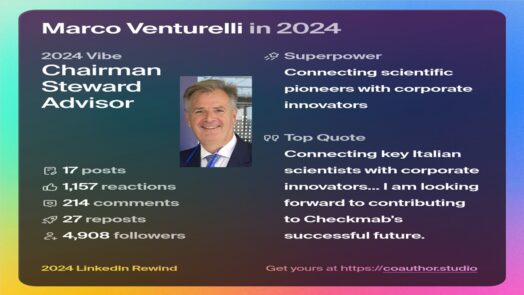Finance and Sustainability

Loving Controlling – Chapter 7: Sustainability Financial Controller, my (your) future role
Published on December 22, 2017
Juan Jose Piedra Galan
Back in 1996, more than 20 years ago, I was just starting in my professional career. At that time I was a young, full of energy guy working in the logistics department of an automotive organization, before moving to Controlling. That company organized a yearly internal contest in order to collect productivity and sustainable initiatives, and I decided to submit an idea which in summary was based on the use of recycled paper and implementation of paper bins. My idea had a very positive response and actually won the Region Europe award under the sustainability category but, honestly speaking, today I recognize the simplicity of the idea, and the low impact in the environment didn’t deserve such recognition.
Fortunately during this time things have dramatically changed: sustainability is key within the strategy of many multinational companies. Some of them create an individual, yearly sustainability report: The Coca-Cola Company (TCCC), Procter & Gamble (P&G), Apple, General Motors (GM), etc and have own Chief Sustainability Officers (CSOs or equivalent positions) reporting to the CEO, as an evidence of the important position they hold.
I attended recently to a presentation done by Bérangere Magarinos-Ruchat, Global Head of Sustainability at Firmenich, my current company, and I must admit it was really inspiring (it was actually the trigger of this article). In her speech she mentioned the 17 sustainable development goals for 2030 from United Nations, which among others include:
– No poverty: No people living with less than $1.25 a day,..
– Zero hunger: Ending all forms of malnutrition, especially in children and vulnerable communities,…
– Quality education: All girls and boys complete free, equitable and quality primary and secondary education,…
– Gender equality: End all forms of discrimination and / or violence against all women and girls everywhere,…
– Clean water and sanitation: Achieve universal and equitable access to safe and affordable drinking water for everyone,…
– Reduced inequalities: Achieve and sustain income growth of the bottom 40% of the population at a rate higher than the national average,…
– Responsible consumption and production: halve per capita global food waste at the retail and consumer levels and reduce food losses among production and supply chains,…
– Climate action: Integrate climate change measures into national policies, strategies and planning,…
– Partnership for the goals: Adopt and implement investment promotion regimes for least development countries,…
These goals are fully aligned with the targets declared in the UN Climate Change Conference held in Paris in December 2015 where the countries specifically committed to:
- Holding the increase in the global average temperature to well below 2ºC above pre-industrial levels (if possible 1.5 ºC)
- Increasing the ability to adapt to the adverse impacts of climate change and foster climate resilience and low greenhouse gas (GHGs) emissions development, in a manner that does not threaten food productions
- Making finance flows consistent with a pathway towards low GHGs emissions
All the above goals and commitments linked to sustainability are established at country level, so you may think nothing will change from micro-economical point of view, but I don’t think that will be the case. Companies will be for sure impacted by those targets because two main reasons: first, national laws and regulations connected to sustainability will be adjusted to those UN goals sooner or later and timelines are quit stretched (12 years is a narrow time-frame in a multinational lifetime) so it will be important to make an step ahead as quick as possible. The second cause is a matter of reputation: companies are starting to share their sustainability achievements at the same level of importance as the financial ones, in a kind of race to be positioned on the first place as best sustainable company within their own sector.
Considering the above context, I strongly believe the position of Sustainability Financial Controller (SFC) will be soon created in large multinational companies. The skills and techniques of finance business partners such make comprehensive reports to analyze data or drive and lead productivity initiatives are fully applicable under the umbrella of sustainability topics. SFCs shall be responsible of, among others, the following tasks:
- Calculate sNPV (sustainability NPV) and sPayback (sustainability Payback) using comparable drivers such CO2e (CO2 equivalent) or CO2/kg produced. In these calculations it will be necessary to use an equivalent of a cost of capital for the financial ones, that could be based on the percentage of temperature increase provided by international environmental organizations.
- Support right prioritization of alternatives to reduce GHGs – Scope 3 (emissions that are a consequence of the operations of an organization, but are not directly owned or controlled by the organization) including employee commuting, business travel, third-party distribution and logistics, production of purchased goods
- Lead productivity initiatives to improve waste efficiency rates, including fees to offset carbon footprint e.g. via carbonfund.org
I really hope this vision will come true. And I expect that in 2030 the sustainability financial controller will be a standard financial role to apply to in many companies. Today I see obsolete the idea I had 20 years ago on implementing recycled paper in the office so, hopefully in the next 10 years, this article will be also considered obsolete.
Loving Controlling’ is a set of articles based of finance topics with a main goal: shake your brains. Juan Jose Piedra is a finance controller, Star Trek follower, Real Madrid supporter, Mary J. Blige fan, flawed writer and above all a proud father





